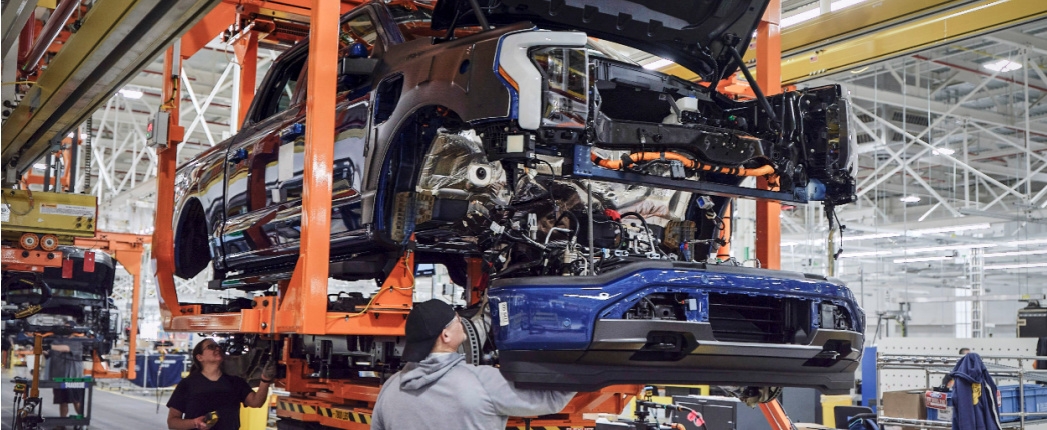
The impact of e-mobility on the lubricants industry will be felt more acutely by metalworking fluids producers, according to a new report commissioned by the Independent Lubricant Manufacturers Association.
The consumer automotive manufacturing sector accounts for 28% of metalworking fluids used in North America, amounting to about 51 million gallons. Of that, 40% is removal fluid – also known as coolant – 30% forming, 5% protecting and 5% treating fluids.
Making an internal combustion engine car requires metalworking fluid for machine bearings, camshafts and engine blocks, among myriad other parts. A battery electric vehicle has roughly half the number of parts of an ICE or hybrid vehicle. These parts are also less complicated, which means reduced need for metalworking fluids.
The consumption of all types of metalworking fluids per vehicle produced is projected to fall by 3% for hybrids and 33% for BEVs, said Gabriel Tarle, a senior energy practice analyst at Kline & Co., which carried out the report. Removal fluids will be the most impacted, and in the case of BEVs, demand could fall by half, Tarle said during the webinar presentation of the report on Monday.
The change in demand for metalworking fluids depends on the rate of transition to e-mobility. Kline has modelled three scenarios, with the most likely being that by 2030, BEVs will account for 50% of new vehicle sales in North America.
“What’s really important is we actually understand at a granular, at a vehicle level what that impact is. How much less removal fluid or coolant is required to produce one EV versus an ICE?” said Annie Jarquin, Kline’s vice president of energy consulting and custom research.
Many of the legacy automakers in the United States are investing billions of dollars in BEVs, joining pure BEV newcomers such as Tesla, Lucid and Rivian. This could also mean reduced demand for first-fill passenger car motor oils, too.
“The impact of electrification on PCMOs has been widely discussed and debated for years,” Jarquin said. “The key point of debate is really around the pace of this electrification of the vehicle parc and there’s a lot of uncertainty around how fast that’s going to happen.”
Kline expects that passenger car motor oil demand will decline by 45% by 2040.
“As we add one BEV into the parc, we’re removing 100% of that vehicle’s motor oil in terms of an ICE. And so the penetration of BEVs into the marketplace actually has a huge impact on the demand for PCMO,” said Jason Montcrieff, a management consultant at Kline.